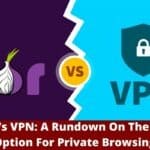The internet has made most aspects of life much more convenient for anyone. You can find out information, communicate with people, and even pay all your bills online now. This is possible with just a few clicks and takes as little as a few seconds. However, all of this convenience does have its own risks. When you pay bills online, you may expose your financial and personal information to hackers or other malicious sources. Therefore, when you avail of online services like Spectrum Bill Pay, you need to be vigilant and secure.
The good news is that it’s not too difficult to secure your information and transactions from hackers. You just have to follow a few simple tips and tricks to keep safe while paying bills online. Most of these tips do not require any technical expertise, so you can follow them easily. Here are a few top tips you can use for safe internet billing.
Set Multi-Factor Authentication
First of all, you should have multi-factor authentication on your transactions as well as various billing portals. When you enter the relevant information on your device, you should get a text alert with a code in it in order to complete the transaction.
This will help you keep your financial transactions safe, and help you monitor them properly. With this kind of multi-factor authentication, you can alert the authorities if you receive a code for a transaction you did not conduct online.
Create Strong Passwords
You must set strong passwords on all billing portals and have a complex pin code for your cards. When you create a password, use a mixture of alphabets, numbers, and special characters. In addition, do not share these passwords with anyone and change them regularly. Furthermore, you should have different passwords on all the billing websites you use.
Do not use the same password for multiple websites, as that will put your financial and personal information at risk. If you feel you can’t remember too many passwords, then write them down somewhere and keep them in a safe location only you can access.
Monitor Your Transactions
It is best to be on top of all your financial activities. Make sure you record all the transactions you make and refer to these records regularly. In addition, you should check your banking app and account statements to see what transactions have been made. This will help you identify any suspicious transactions you may not have made yourself.
Furthermore, if your information is compromised, your records will also help you see what caused this issue and take action accordingly. Therefore, keep proper account records for all of your transactions in order to be safe.
Do Not Share Personal or Financial Information
Keep your personal and financial information safe online. Do not enter this information on any website unless you’re sure it’s necessary. In addition, you should also avoid social engineering. If you receive a phone call that prompts you to share this information for a reward or using some scare tactic like shutting your account down, do not share it.
Instead, report the incident to your bank and the relevant legal authorities. This will help protect you and many other prospective victims from a variety of scams out there.
Keep Your Wi-Fi Network Safe
Always use a private Wi-Fi network when you need to enter personal or financial information on a billing portal. If you use a public connection, it will expose your information to multiple malicious parties and can result in a serious data leak.
Even if you’re using your home Wi-Fi network, make sure you know who is using it. You can find out by delving into its settings and checking which devices are connected to it. If there is a suspicious device there, you can remove or block it, and then report it accordingly. Therefore, keeping your Wi-Fi network safe and private will really help you protect your information when paying bills online.
Be Aware of Suspicious Emails & Attachments
Apart from social engineering, phishing can also take place in your email inbox. If you see an email from an unverified source asking for your information, ignore and report it. Often, such emails are simply ruses to get your information and then misuse it.
In addition, if you receive an email that claims to be from any of your providers, you must confirm its legitimacy. Check if it has the appropriate email domain and logo and whether it is company policy to ask for information in this way. Usually, most companies do not operate in this manner, so call your providers if you receive such emails to report impersonation.
Confirm Website & Payment Portal Legitimacy
Always check the security certificate of the website and portal you’re accessing. If it has an HTTP prefix instead of an HTTPS prefix, then avoid entering your information there. In addition, if your browser alerts you about security issues in a website, you must listen to it.
So, you must confirm the legitimacy and security status of a portal before you pay your bills online. You can even call up the official company number to ask about payment options.
In conclusion, there are a few basic tips you should follow for safe internet billing. These will protect your personal and financial information and prevent you from falling victim to various leaks or scams.

